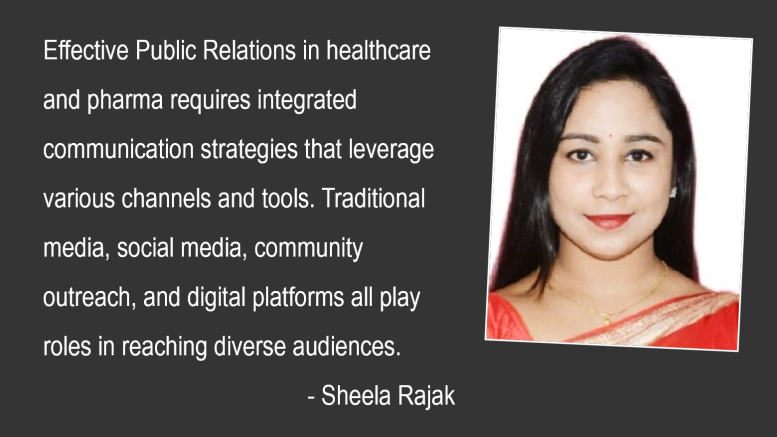Healthcare and pharmaceuticals are involved in an intricate and ever-evolving landscape. Public relations (PR) plays a crucial role in connecting organisations with the public. The dual objectives of building trust and educating the public are at the heart of PR functions in this sector. These objectives are vital for ensuring that healthcare providers and pharmaceutical companies maintain a positive reputation and foster informed and healthy communities.
Educating the Public
Beyond building trust, PR professionals in healthcare and pharma have a critical role in educating the public. Informed patients are better equipped to make decisions about their health, adhere to treatment plans, and adopt preventive measures.
Health Literacy
Improving health literacy is a significant PR function. This involves breaking down complex medical information into understandable and actionable messages. PR campaigns often focus on educating the public about disease prevention, healthy lifestyles, and the importance of regular medical check-ups. For example, public health campaigns promoting vaccination are designed to educate the public about the benefits and safety of vaccines, thereby increasing vaccination rates.
Disseminating Research and Innovations
Healthcare and pharmaceutical companies continuously conduct research and develop new treatments and technologies. PR professionals play a vital role in disseminating this information to the public and healthcare professionals. By translating scientific research into accessible language, PR helps to ensure that the benefits of new medical advancements are widely understood and adopted. For instance, when a new drug is approved, PR teams work to educate the public about its uses, benefits, and potential side effects.
Addressing Misinformation
The proliferation of misinformation, particularly in the digital age, poses a significant challenge. PR professionals are tasked with monitoring and addressing false information that can harm public health. This involves actively engaging with the media, utilising social media platforms, and working with influencers to correct misconceptions. For example, during the COVID-19 pandemic, PR efforts were crucial in combating vaccine misinformation and promoting accurate health information.
Integrated Communication Strategies
Effective PR in healthcare and pharma requires integrated communication strategies that leverage various channels and tools. Traditional media, social media, community outreach, and digital platforms all play roles in reaching diverse audiences. PR professionals must be adept at crafting messages that resonate with different demographics and are tailored to various communication channels.
Transparency and Honesty
One of the primary ways PR builds trust is through transparency and honesty. By openly communicating both successes and setbacks, healthcare organisations and pharmaceutical companies demonstrate their commitment to integrity. For instance, during the COVID-19 pandemic, transparent communication about vaccine development, side effects, and efficacy was essential in building public trust. PR professionals played a crucial role in disseminating accurate information and correcting misinformation.
Crisis Management
In healthcare and pharma, crises can range from product recalls to public health emergencies. Effective crisis management is a critical PR function. PR teams must act swiftly to communicate with the public, manage the flow of information, and mitigate negative impacts. This involves not only addressing the immediate crisis but also maintaining long-term trust by showing competence and care in handling the situation.
Building Relationships with Stakeholders
PR in healthcare and pharma also involves building strong relationships with various stakeholders, including patients, healthcare professionals, regulatory bodies, and the media. Engaging with these groups through consistent and meaningful communication helps to foster trust. For example, pharmaceutical companies often collaborate with healthcare professionals and patient advocacy groups to ensure that their communications are relevant and trustworthy.
Conclusion
The role of PR in healthcare and pharma is multifaceted and indispensable. By building trust and educating the public, PR professionals help ensure that healthcare providers and pharmaceutical companies can fulfill their missions of improving health and well-being. Trust is built through transparency, honesty, and effective crisis management, while public education is achieved through clear communication, dissemination of research, and combating misinformation. As the healthcare landscape continues to evolve, the importance of skilled PR professionals in fostering informed and trusting relationships between organisations and the public will only grow.
The views and opinions published here belong to the author and do not necessarily reflect the views and opinions of the publisher.



Be the first to comment on "Building Trust and Educating Public: The Key Functions of PR in Healthcare and Pharma"